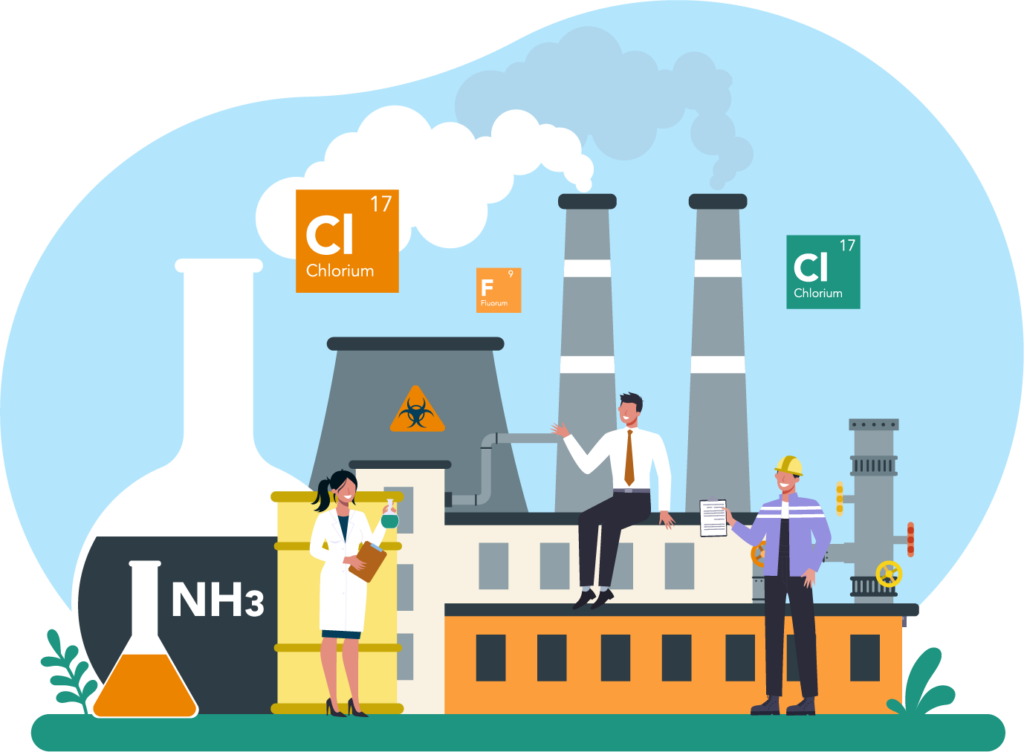Compliance in the chemical industry holds significant importance operating in today’s heavily regulated business landscape. Navigating the maze of stringent laws and regulations is crucial to ensure the safety of employees, protect the environment, and safeguard a company’s reputation from potential penalties. In this practical guide, we will break down the key areas that chemical companies should focus on to comprehend, achieve, and maintain compliance in a concise language, catering to those who may find the concept of compliance daunting.
The first step is, of course, understanding the applicable regulations.
A successful compliance process starts with thoroughly understanding the regulations that apply to your specific industry. Talking about chemical companies, staying compliant with local, national, and international regulations governing chemical production, transportation, storage, and disposal are crucial.
Establishing a Compliance Management System
Indisputably, managing compliance effectively requires a well-designed system. In this part, we will share some main topics to consider for a better compliance management system:
- Creating a Compliance Policy: Developing a comprehensive policy is the foundation of your compliance efforts. It should outline your commitment to compliance, highlight the specific regulations applicable to your operations, and clearly define the responsibilities of employees at all levels.
- Hiring a Compliance Officer: Designating a compliance officer or a team ensures that someone is responsible for overseeing compliance initiatives, staying updated on regulatory changes, and implementing necessary adjustments within your organization.
- Conducting a Risk Assessment: Regularly conducting risk assessments helps identify potential compliance gaps and hazards. This enables you to prioritize resources and address high-risk areas more effectively.
- Having Standard Operating Procedures (SOPs): SOPs play a crucial role in ensuring compliance. These step-by-step instructions should clearly outline the actions required to meet regulatory standards. Communicate effectively with your employees and conduct regular training sessions to reinforce their understanding.
- Record-Keeping: Maintaining accurate and up-to-date records of compliance activities is essential. Keep track of inspections, audits, training sessions, and incidents. These records serve as evidence of your commitment to compliance and can prove invaluable during regulatory inspections or audits.

Employee Compliance Training and Engagement
Compliance is teamwork and your employees are the backbone of compliance within your chemical company. Therefore, recognizing the importance of comprehensive training programs is key. Train your employees in safety procedures, proper handling of hazardous materials, and the specific regulatory requirements relevant to their roles. Ensure they understand the potential risks associated with their work and provide them with the necessary knowledge and skills to mitigate those risks effectively.
Moreover, fostering a culture of compliance within your organization is crucial, too. Encourage employees to promptly report any compliance concerns or incidents. Establish an anonymous reporting system to ensure that employees feel comfortable sharing information without fear of retaliation. Regularly communicate the importance of compliance and celebrate achievements in this area to keep employees engaged and motivated.
Safety and Environmental Considerations
Safety and environmental compliance are paramount in the chemical industry. Implementing robust safety protocols, such as personal protective equipment (PPE) requirements, emergency response plans, and regular equipment inspections, is vital. Maintaining a safe working environment, conducting routine safety drills, and providing ongoing safety training should be prioritized.
Additionally, adhering to environmental regulations is crucial to minimize the impact of your operations on the environment. Implement proper waste management practices, including appropriate storage, handling, and disposal methods. Monitor emissions and implement measures to reduce pollution and conserve natural resources.
Regular Audits and Continuous Improvement
To ensure ongoing compliance, regular internal audits should be conducted. These audits assess adherence to regulations and identify areas for improvement. They can be performed by an internal compliance team or external consultants with expertise in chemical industry regulations.
Use the findings from audits to develop corrective action plans and implement necessary changes. Remember, compliance is an ongoing process as regulations evolve over time. Stay informed about regulatory updates, engage with industry associations, and participate in relevant conferences and seminars to keep your compliance practices up to date.
Conclusion
As a result, every sector faces unique compliance challenges, and chemical companies, which work with hazardous materials directly impacting human life, carry significant responsibilities in compliance. Also, it is good to mention that for companies finding this whole process too complex to manage, the option of utilizing a compliance software program can be highly beneficial in ensuring no important installations or requirements are overlooked.
Is your company one of them? Feel free to contact us and see what is possible for your company.







